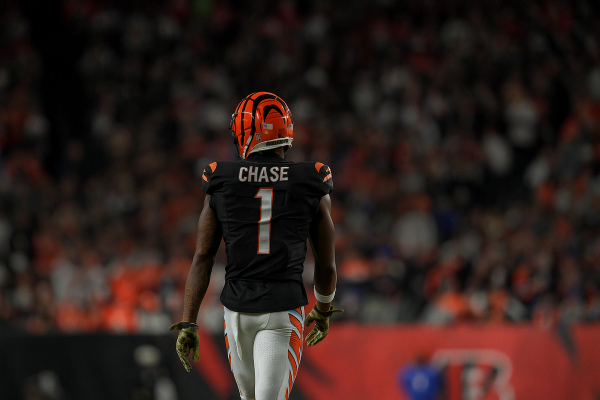Analysis Paralysis: When Too Much Research Kills Your Edge


James White
Co-Founder of HotTakes
It's 11:47 PM and you're still down a rabbit hole researching whether Ball State's third-string linebacker's ankle injury affects the under in tomorrow's MACtion game against Eastern Michigan. You've read injury reports, checked weather patterns, analyzed referee tendencies, and calculated advanced metrics that most professionals have never heard of.
Here's the brutal truth: You just spent three hours researching a bet that a sharp bettor would make or skip in thirty seconds. That's not thoroughness—that's analysis paralysis, and it's quietly destroying your edge while making you feel productive. Real talk: sometimes knowing less actually makes you more profitable.
The Information Overload Trap
Your brain is wired to believe that more information equals better decisions, but sports betting doesn't work that way. There's a sweet spot where additional research actually hurts your performance by creating false confidence in irrelevant factors and delaying action on time-sensitive value.
Professional sports bettors understand something recreational players miss: most betting edges exist in obvious places that don't require deep dives into obscure statistics. While you're analyzing third-string player injury reports, sharp money is hammering obvious line value that will disappear within hours.
Recent studies on decision-making show that people who spend more than 20 minutes researching routine decisions actually make worse choices than those who decide quickly with basic information. The same principle applies to sports betting—beyond a certain point, additional research creates confusion rather than clarity.
Why More Information Makes You Worse
Decision Fatigue Destroys Judgment
Every piece of information you process uses mental energy, and your brain has limited decision-making capacity each day. When you spend hours analyzing minor factors, you're using up the mental resources you need for identifying genuine edges and managing your bankroll effectively.
Think about your betting behavior on days when you've done extensive research versus days when you made quick decisions on obvious spots. Most bettors are surprised to discover their win rate is actually higher on the quick-decision days, even though they felt less "prepared."
This happens because decision fatigue leads to analysis paralysis, where you either overthink obvious value until it disappears, or convince yourself that marginal bets are worth making because you've invested so much research time.
The Relevance Illusion
Here's where analysis paralysis gets expensive: your brain treats all information as equally important when making decisions. That obscure stat about Tuesday road favorites in conference play feels just as relevant as obvious factors like key player injuries or weather conditions.
Sharp bettors know that 80% of betting value comes from 20% of available information—team motivation, injury impacts, line movement, and basic situational factors. Everything else is mostly noise that creates the illusion of edge without providing actual predictive value.
Professional handicappers have a simple rule: if you can't explain your bet in three sentences, you're probably overthinking it. The most profitable bets often have the simplest explanations.
Finding the Research Sweet Spot
The 15-Minute Rule
Set a hard limit of 15 minutes for researching any single bet. This forces you to focus on factors that actually matter while avoiding the rabbit holes that eat time without improving accuracy. If you can't find a compelling reason to bet within 15 minutes, skip the game entirely.
This isn't about being lazy—it's about efficiency. The same energy you spend on one over-researched bet could identify three legitimate edges with better expected value and higher confidence levels.
The Priority Information Hierarchy
Train yourself to evaluate information in order of importance: first check for obvious value (line movement, injury news, weather), then situational factors (rest advantages, motivation spots), and only then dive into advanced metrics if time allows.
Most analysis paralysis happens because bettors start with complex statistics instead of basic factors. By the time you've calculated advanced efficiency ratings, the line has moved and your edge has disappeared.
The Confidence Calibration Test
Before placing any bet, rate your confidence from 1-10 and write down your top three reasons. If you can't quickly identify three clear factors, or if your confidence is below 7, skip the bet. This simple test eliminates most analysis paralysis situations by forcing clear reasoning.
Professional bettors know that uncertain bets with extensive research usually perform worse than confident bets with basic analysis. Trust your instincts when they align with clear factors, and skip spots that require mental gymnastics to justify.
The Action Threshold Framework
Create specific criteria that trigger immediate action: clear line value, obvious injury impacts, or historical patterns with strong data. When these conditions appear, bet quickly without additional research. This prevents overthinking from talking you out of legitimate edges.
Remember that betting markets are efficient—obvious edges don't last long enough for extensive analysis. By the time you've researched every angle, professional money has already moved the line.
Practical Takeaways
The next time you catch yourself deep in research mode, remember that most betting edges are obvious and time-sensitive, not hidden in obscure statistics. Set a 15-minute research limit for any single bet, focus on high-impact factors before diving into advanced metrics, and trust confident decisions based on clear reasoning over uncertain bets requiring extensive justification.
Smart predictors know that paralysis analysis is just procrastination disguised as preparation. The goal isn't to know everything about a game—it's to identify clear edges quickly and act on them before they disappear.
Bottom line: Your edge comes from seeing obvious value quickly, not from finding hidden secrets in data rabbit holes. Research efficiently, decide confidently, and save your mental energy for spotting the next clear opportunity while everyone else is still analyzing the last one.
Ready to turn your streamlined insights into real rewards through efficient decision-making? Join HotTakes—the community where your quick, confident predictions get recognized, your decisive approach gets amplified, and your time-efficient strategy gets rewarded.
Continue the Journey
with More Expert
Insightsmore Articles

The Confidence Cascade: Why Hot Streaks Lead to Cold Reality Checks
Mental Edge
The Closing Line Lie: Why Following 'Sharp' Money Isn't Actually Sharp
Market Inefficiencies
The Player Prop Goldmine: How Books Profit from Fantasy Football Thinking
Market Inefficiencies
Why Primetime Games Are Sharp Money's Favorite ATM Machine
Market Inefficiencies